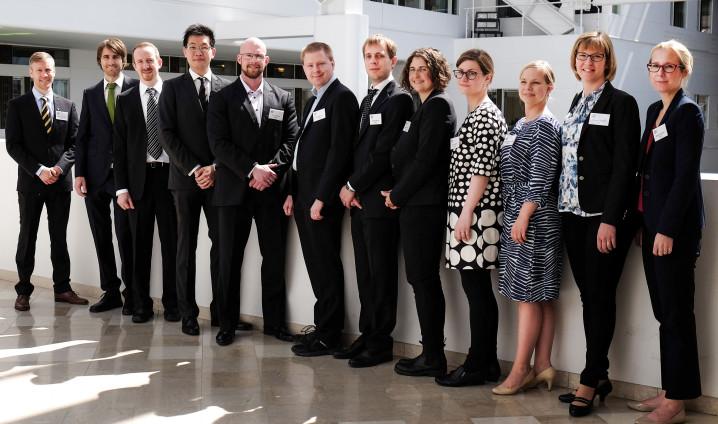
Ingvar Carlsson Award – An evaluation of ICA 1-3
The Ingvar Carlsson Award (ICA) program was launched in 2005, with the explicit aim to “to identify and support young, well‐qualified postdocs who intend to start independent, lasting and creative research careers on their return to Sweden. The research to be conducted should have a potential to strengthen Sweden’s future competitiveness”. The autum of 2015 an evaluation of the first three ICA calls (issued in 2005, 2006 and 2008), was put together by a specially appointed Evaluation Committee with help from the SSF administration.
The report reviews the development of the ICA 1‐3 calls in terms of procedures and program content. It presents aggregate data on the ICA awardees concerning their performance and careers after receiving the ICA grant, and results from a questionnaire that was sent out to the awardees. Interviews with a small group of awardees, as well as with a few persons that have been centrally involved in the selection of awardees and in running the ICA program have provided additional background material.
As a group, the ICA awardees have been very successful in terms of establishing independent research groups, attracting external funding, publishing at an internationally competitive level and being appointed to tenured academic positions. As an example, no less than 11 of the 33 awardees that work in academia have obtained individual grants from the European Research Council (ERC), a clear mark of distinction. The Evaluation Committee was impressed by the degree of utilization results. Nevertheless, what is meant by utilization and to what degree it should have priority in an ongoing ICA project appeared to be unclear to the awardees. SSF should seek to clarify the importance of utilization as it pertains to the ICA program, and to define what SSF means by utilization in the context of the ICA calls.
The Evaluation Committee notes some weaknesses in the outcome of the ICA program. The level of mobility among returning postdocs has been rather low, with only 20% now established at a different university than where they did their PhD. A rather large fraction of the ICA awardees did not feel welcomed or did not feel they received significant support from their host university. Female awardees generally felt less welcomed at, and were less satisfied with the support they received from, their host universities than men. Female awardees, while seemingly not discriminated against in the selection process, have been less successful in acquiring tenured positions than men. Although these weaknesses reflect mainly on the universities, these are issues that SSF could bring up when discussing with host departments or address within the leadership training program Overall, the Evaluation Committee finds that SSF has been very successful in selecting highly qualified ICA award recipients. Reciprocally, the ICA awardees see the ICA program, including the mandatory Leadership Training program, as having been important for their success. The Evaluation Committee strongly recommends that the ICA program be continued at the current volume, i.e., ~12 awards per call, each of ~4 MSEK. To help future postdocs plan ahead, it is recommended that upcoming ICA calls are made according to a pre‐announced regular schedule (e.g., biannually).